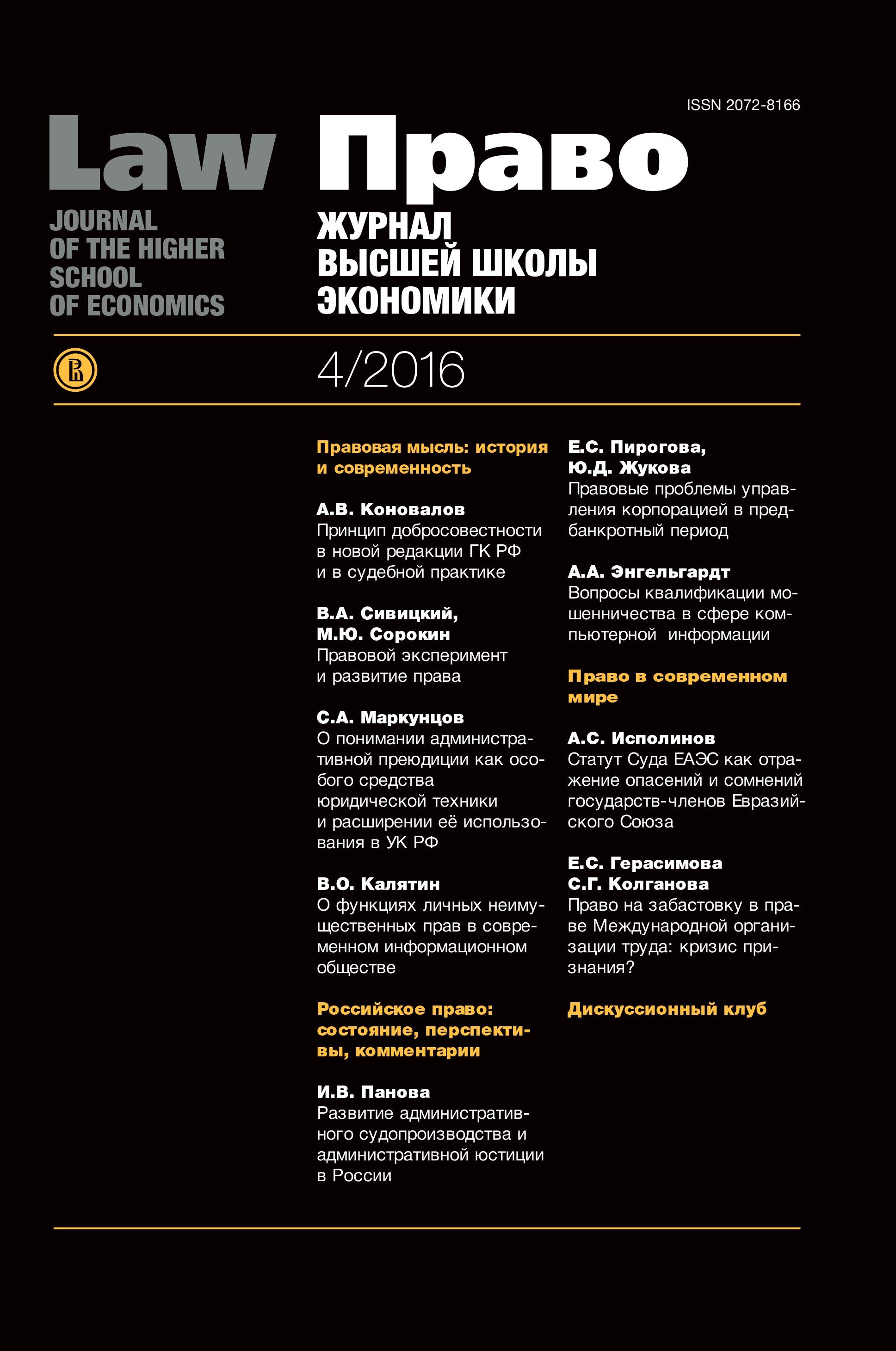Bona Fides Principle in the Updated Russian Federation Civil Code and in Judicial Practice
Abstract
The author examines the current Russian civil law with a focus on a key principle of bona fides (goodfaith). The appearance of the principle is appreciated as a guarantee of stability and social orientationof the law. By making a brief historical overview, the author supports the normative consolidation ofthe principle, which is declared in the Conception of Civil Legislation. Besides, the author stressesthe principle in question not only for the legal regulation of property and binding relations but alsothe practical rationale of the principle as a pillar of civil legislation. Food faith is defined by the authoras an intention of a party to a civil transaction to prevent at a maximum the possibility of violation byconduct of legal rights and judicial interests of other parties, perform their rights strictly under thecontent, scope and purpose. Besides, the author takes up the comparative analysis of good faithto show that the concept covers mostly reasonableness and fairness of the actions of the parties tocivil relations. At that, the author notes that non-inclusion of the principles of reasonableness andjustice to the pre-requisites of civil law deems a justified classified default. The author concludes with remarking a tendency of judicial practice to broaden the application of the good faith principle. Thelatter seems relevant to court only if it cannot deliver a fair decision only by interpreting and applyingthe existing the applicable rule of law.
Published
2016-02-25
How to Cite
KonovalovA. (2016). Bona Fides Principle in the Updated Russian Federation Civil Code and in Judicial Practice. Law Journal of the Higher School of Economics, (4), 4-14. https://doi.org/10.17323/2072-8166.2016.4.4.14
Issue
Section
Legal Thought: History and Modernity


















